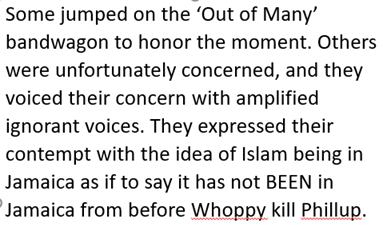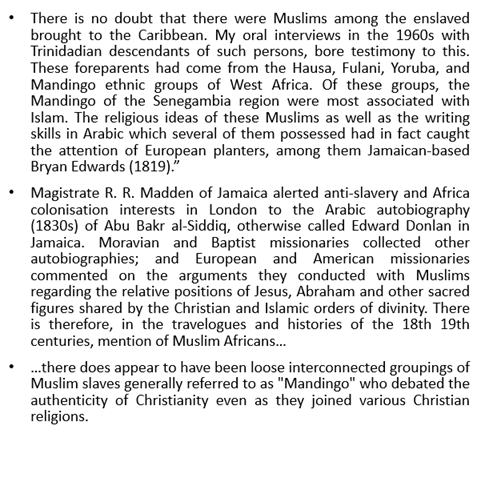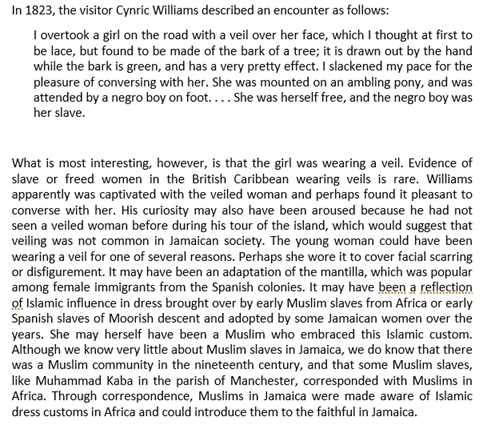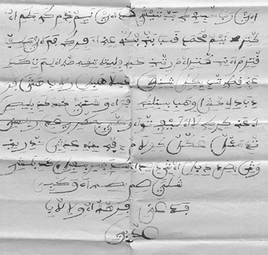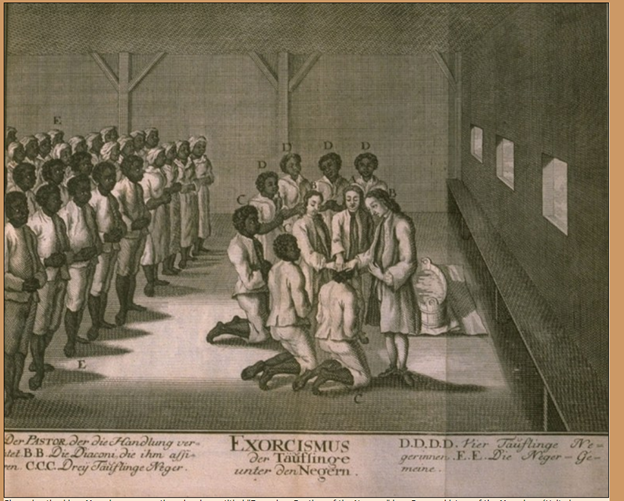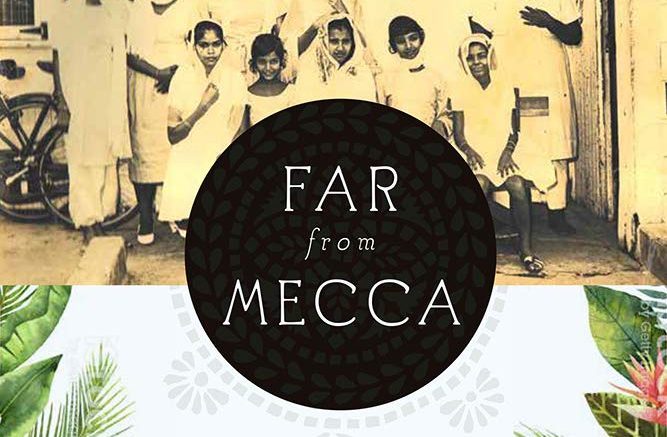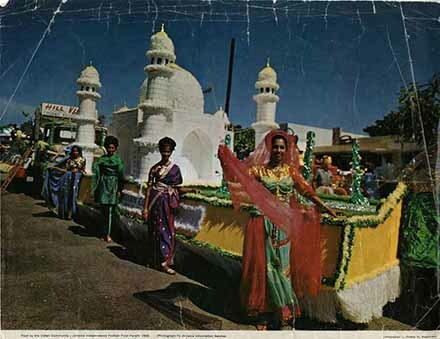A tracing of Jamaica’s Islamic Heritage
I want to start off by saying congratulations to Sameerah Dyer and Salama Abdul-Majeed for their recent success in their Principles of Business CSEC exams! Their success and the comments under the article put out by the @JamaicaGleaner
I want to start off by saying congratulations to Sameerah Dyer and Salama Abdul-Majeed for their recent success in their Principles of Business CSEC exams! Their success and the comments under the article put out by the @JamaicaGleaner
prompted me to create this thread. By far, the most common reactions by Jamaicans on the different social media are commendations for the students’ work. Some Muslims celebrated under the comments with Divine words. Some non-Muslims were genuinely curious about Islam in Jamaica.
A note on Jamaica’s history
Reading Jamaica’s history through Muslim lens is already a controversial act. Much of the history we are familiar with, were/are read through the extremes of Eurocentric and Afrocentric lens. The Afrocentric perspective, which does not necessarily
Reading Jamaica’s history through Muslim lens is already a controversial act. Much of the history we are familiar with, were/are read through the extremes of Eurocentric and Afrocentric lens. The Afrocentric perspective, which does not necessarily
mean an African-centered viewpoint, thinks about a cultural purity of an imagined Africa in conversation w/ the terror of Whiteness. This outlook can often limit the religiosities of those involved, sometimes only ascribing so-called ‘African Traditions’ to our ancestors. However
, I won& #39;t be trying to discount the importance of African Traditions and their impact on the Jamaican religious economies in this thread, but I endeavor to salvage parts of our history by tracing our Islamic heritage from slavery to the contemporary situation in Jamaica.
Slavery
Islam landed in Jamaica on slave ships. The first Muslims on the island were slaves taken as property from West Africa by the Spanish to labor on the plantations. Muslims continued being forcefully taken when the British took over the island. The archives however may
Islam landed in Jamaica on slave ships. The first Muslims on the island were slaves taken as property from West Africa by the Spanish to labor on the plantations. Muslims continued being forcefully taken when the British took over the island. The archives however may
remain silent about very specific parts of our history if they were not ‘loud,’ which is to say, they did not conflict with white comfort or planning. A substantial portion of our Islamic history during slavery has fallen victim to this. Nonetheless, some academics have put
forward different accounts and theories to talk about Islam in Jamaica during slavery. Three academics I will mention here are Drs. Sultana Afroz, Maureen Warner-Lewis, and Steeve O. Buckridge.
A further examination of the three& #39;s works will reveal conflict in their research and sometimes explicit debate between Maureen and Sultana.
Maroons, Maroon Wars, and the Baptist War
Afroz surveys the Muslim theological tradition among the Maroons and during the Maroon Wars. Afroz also talks about the crypto-Muslims in Jamaican society before and at the time of the Baptist War.
Afroz surveys the Muslim theological tradition among the Maroons and during the Maroon Wars. Afroz also talks about the crypto-Muslims in Jamaican society before and at the time of the Baptist War.
Warner-Lewis is in strong opposition to Afroz’ views and if you are interested in reading about their views, here are works you can consult:
Emancipation
“In honor of full emancipation in the British West Indies in 1838, Muhammad Kabā Saghanughu, a ninety-year-old formerly enslaved man in Jamaica, wrote an address using Arabic letters to represent English sounds (‘ajami) and submitted it to Sir Lionel Smith,
“In honor of full emancipation in the British West Indies in 1838, Muhammad Kabā Saghanughu, a ninety-year-old formerly enslaved man in Jamaica, wrote an address using Arabic letters to represent English sounds (‘ajami) and submitted it to Sir Lionel Smith,
governor of Jamaica, who kept it in his personal papers. Kabā Saghanughu is the only known author of a first-person slave narrative to have survived all phases of slavery, from his kidnapping in Africa in 1777 to emancipation sixty-one years later.”
To read more about this:
To read more about this:
Discerning Muslim history during the above periods (slavery and emancipation) is very challenging for a couple of reasons. It is important to remember that a lot of religious scrubbing was happening during the periods mentioned earlier.
To become slave was also to become Christian, not in the sense of a white Christian but rather to recognize the curse of Ham as one’s correct genealogy. Thus, the colonial gaze often understood its property (the slaves) as Christians and if there was no explicit confrontation
with Islam it may not have been recorded.
Other than the religious scrubbing that took place during this period, reading the period through Afrocentric lens can produce colonial work. Religion is a colonial category and it begs for exclusive attachment to a particular professed
Other than the religious scrubbing that took place during this period, reading the period through Afrocentric lens can produce colonial work. Religion is a colonial category and it begs for exclusive attachment to a particular professed
faith. That is, it boxes us into one tradition without a possibility of being in several spaces at once. Slaves may have also existed in liminal spaces of their religiosity. An Afrocentric reading might claim beliefs to very specific religious categories, usually
‘African Traditions,’ whereas the average Afro-Jamaican might have been walking vessels for Interreligious confluences.
I recommend reading the chapter “BLACK LITERARY ISLAM: Enslaved Learned Men in Jamaica and the Hidden Sufi Aesthetic” in Far from Mecca: Globalizing the Muslim Caribbean by Aliyah Khan to be more familiar with the Muslim Heritage during this period.
Indentureship
The contemporary situation of Islam in Jamaica can be traced to the revival of the faith by Indian indenturers. From 1845 – 1917, about 36,000 Indian indenturers came to Jamaica, approximately 10% of whom were Muslims.
The contemporary situation of Islam in Jamaica can be traced to the revival of the faith by Indian indenturers. From 1845 – 1917, about 36,000 Indian indenturers came to Jamaica, approximately 10% of whom were Muslims.

 Read on Twitter
Read on Twitter
